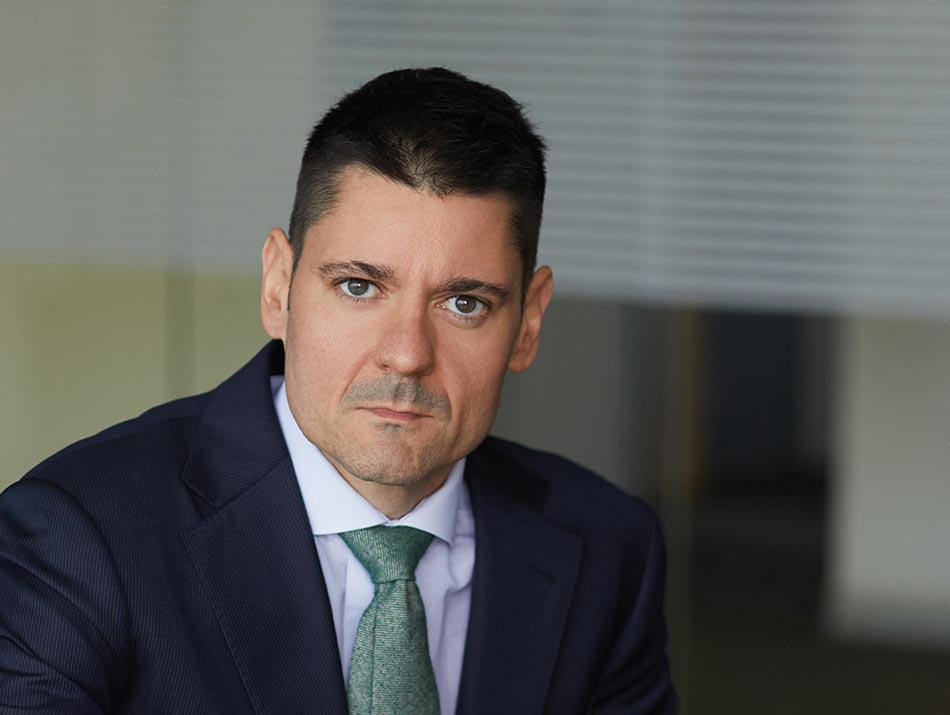Interview
Corona and Politics; Extraordinary Measures in Serbia

After the Serbian President and the Government introduced a set of Measures and Regulations, we spoked with Mr Rastko Petaković, Senior Partner in the lawyer’s office Karanović and Nikolić. Mr Petaković is a long-time ALUMNI of the FNF. The interview has been moderated by Dušan Dinić.
Dušan Dinić:
A number of the measures carried out on the basis of the Decree on the State of Emergency, itself adopted on March 15, have been sharply criticized by experts (among whom – former Supreme Court judge Zoran Ivošević, or a professor of law Miodrag Jovanović) because of alleged breaches of the provisions of the Constitution. What is your opinion regarding this topic? Which ones of those measures could be regarded as dubious?
Rastko Petaković:
Right now, it`s been difficult to assess exactly which ones among the measures stipulated by the state of emergency could be dubious. The Constitution of Serbia has envisaged that some rights could not be restricted even in the state of emergency. The Government of Serbia respected those provisions. In a situation when the state of emergency is to be proclaimed, when mere “survival of the state” is put into question, it is natural that the conditions in the country are those of tension and uncertainty. Justification of those measures should be weighed against the characteristics of the moment when they were carried. At the moment when carried, those measures did not considerably diverge from the ones brought in other countries. Yet I find the way in which this state of emergency was introduced as questionable, at least it was how I had understood the criticism put by the judge Ivošević. There were countries with a much higher number of ill or deceased, yet even there the parliament was able to convoke. I believe that our National Assembly could have done likewise. It still can be summoned up, so as to uphold the proclamation of the state of emergency and adjacent thereby carries measures. Such decisions belong to the original responsibilities of the parliament as the highest representation body. Moreover, such a decision would be a step in the direction of strengthening of the democratic institutions.
Dušan Dinić:
What is your assessment of the breaches of personal rights and freedoms? Are they justified in the environment of the Corona pandemic? Do you consider that the criteria of proportionality is fulfilled?
Rastko Petaković:
Covid-19 pandemic is an unprecedented event. Sharp measures introduced by a number of European countries, especially in the examples of Spain and Italy, have been thereby indicative. Six EU member states have proclaimed a state of emergency in the framework of the mechanism of the European Convention on Human Rights, while almost all of them have introduced at least some measures that on the one hand restricted civil liberties while at the same time granted additional authorities to the bodies of the executive branch of power. As you said, all these should be done proportionally to the perils that lied ahead, i.e. in as much as it has really been necessary. When facing an unprecedented event, to it coupled with this amount of uncertainty, it`s been difficult to judge what would constitute the necessary field of restrictions. The Constitution, for instance, guarantees both the right to health care and the freedom of assembly. Right now it`s been almost certain that healthcare organizations would reach their limits regarding the opportunities for the accommodation of each and every one of those who fell ill. In such circumstances, it seems as inevitable to limit the freedom of gathering. On the other hand, hinting that a 24-hour curfew could be ordered appeared as being way out of the field of necessary measures. Therefore, we cannot talk about a clear distinction between what is and what is not justifiable, at least not in this very moment.
Dušan Dinić:
In your view, can we rest assured that the until-then restricted rights and freedoms will be re-established in full after the termination of the state of emergency and a return into the regular order?
Rastko Petaković:
Prior to the proclamation of the state of emergency, a decree had been carried that limited public gathering in enclosed space. This one, as well as similar ones, could remain in effect even after the revocation of the state of emergency. Yet I cannot see too much risk stemming from such measures – the very nature of a state of emergency is such that certain (but not all!) of the rights guaranteed by the Constitution could be limited in times of its duration. I don`t see any need for those once the rationale for the introduction of the state of emergency seizes to exist. However, I am afraid that the appetite for constitutional reform could emerge when the state of emergency is terminated. The specifics of the Covid-19 pandemic have revealed certain limitations of the current constitutional mechanisms; during this period, some countries resorted to the considerable broadening of authorities of the executive branch of power, as well as to narrowing of the constitutionally stipulated scrutiny mechanisms during the ongoing of the pandemic (the last in a row to do so was Hungary). As we, hopefully, manage to overcome the pandemic successfully, it would be important not to fall into the temptation to additionally ease the procedures for the introduction of the state of emergency or to additionally limit the control mechanisms that should be in place during or after its duration.
Dušan Dinić:
Dear Mr Petaković, we thank you for this interview.